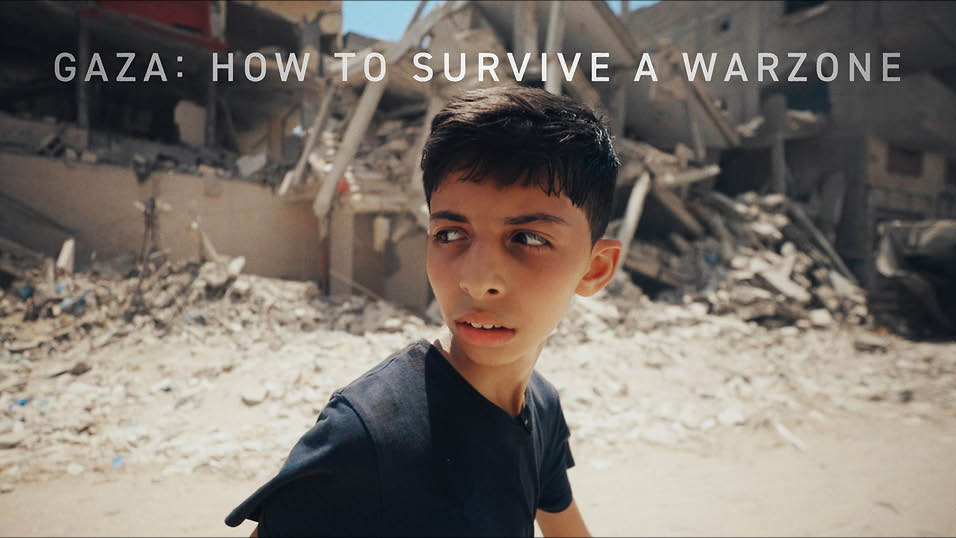The BBC has released a new statement after an initial review by BBC News of recent documentary, Gaza: How to Survive a War Zone.
The doc has been the subject of criticism after it was revealed that the boy narrating the film was the son of a senior Hamas official.
The BBC statement says the corporation asked production company, Hoyo Films, “in writing a number of times … about any potential connections he and his family might have with Hamas” and that the producers “never told the BBC” about the boy’s family connections with Hamas.
The BBC though acknowledges that it “was then the BBC’s own failing that we did not uncover that fact and the documentary was aired.”
A BBC spokesperson said:
“BBC News has conducted an initial review on the programme “Gaza: How To Survive A Warzone”. Today the BBC Board was updated on that work. It has identified serious flaws in the making of this programme. Some of these were made by the production company, and some by the BBC; all of them are unacceptable. BBC News takes full responsibility for these and the impact that these have had on the Corporation’s reputation. We apologise for this.
“Nothing is more important than the trust that our audiences have in our journalism. This incident has damaged that trust. While the intent of the documentary was aligned with our purpose – to tell the story of what is happening around the world, even in the most difficult and dangerous places – the processes and execution of this programme fell short of our expectations. Although the programme was made by an independent production company, who were commissioned to deliver a fully compliant documentary, the BBC has ultimate editorial responsibility for this programme as broadcast.
“One of the core questions is around the family connections of the young boy who is the narrator of the film. During the production process, the independent production company was asked in writing a number of times by the BBC, about any potential connections he and his family might have with Hamas. Since transmission, they have acknowledged that they knew that the boy’s father was a Deputy Agriculture Minister in the Hamas Government; they have also acknowledged that they never told the BBC this fact. It was then the BBC’s own failing that we did not uncover that fact and the documentary was aired.
“Hoyo Films have told us that they paid the boy’s mother, via his sister’s bank account, a limited sum of money for the narration. While Hoyo Films have assured us that no payments were made to members of Hamas or its affiliates, either directly, in kind, or as a gift, the BBC is seeking additional assurance around the budget of the programme and will undertake a full audit of expenditure. We are requesting the relevant financial accounts of the production company in order to do that.
“Given the BBC’s own failings, the Director-General has asked for complaints on this matter to be expedited to the Editorial Complaints Unit, which is separate from BBC News. Alongside this a full fact-finding review will be undertaken; the Director-General has asked Peter Johnston to lead this work.
“Peter Johnston, the Director of Editorial Complaints and Reviews, is independent of BBC News and reports directly to the Director-General. He will consider all of the complaints and issues that have been raised. He will determine whether any editorial guidelines have been broken; rapidly address the complaints that have been made; and, enable the BBC to determine whether any disciplinary action is warranted in relation to shortcomings in the making of this programme. This will include issues around the use of language, translation and continuity that have also been raised with the BBC.
“We have no plans to broadcast the programme again in its current form or return it to iPlayer and will make a further assessment once the work of Peter Johnston is complete.”
Statement from the BBC Board:
“The BBC Board met today. The subject matter of the documentary was clearly a legitimate area to explore, but nothing is more important than trust and transparency in our journalism. While the Board appreciates that mistakes can be made, the mistakes here are significant and damaging to the BBC.
“The Board has required the Executive to report back at the earliest opportunity on the outcomes of the work the Director-General has commissioned.”
Jon Creamer
Share this story

















